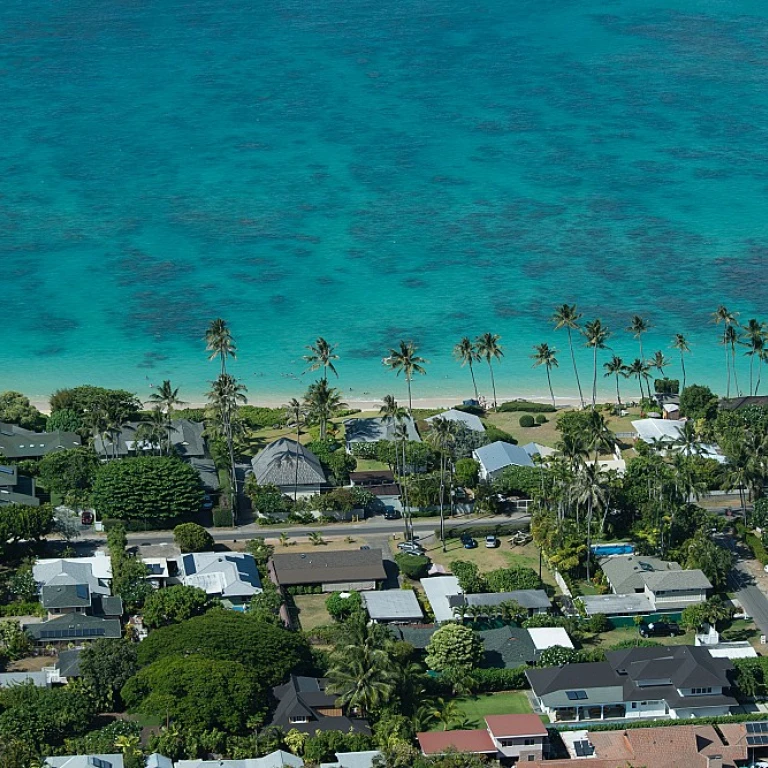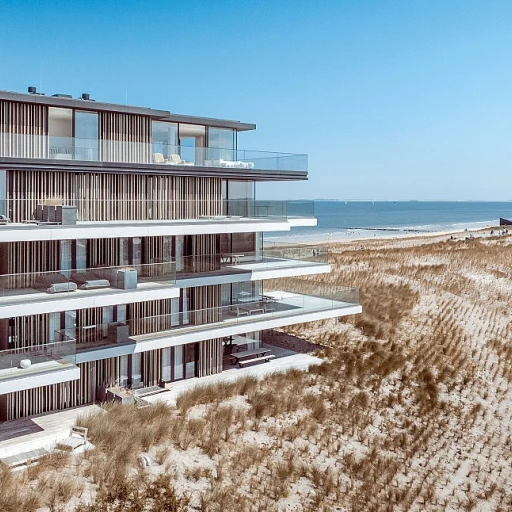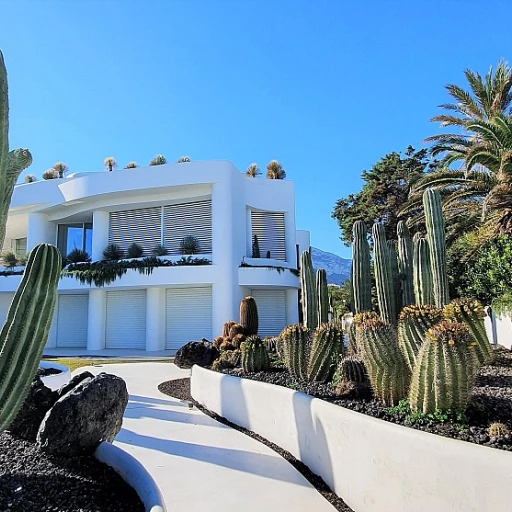
Understanding the Maui Real Estate Market
The Allure of Maui's Real Estate Market
Understanding the Maui real estate market is crucial for those seeking exclusive estate opportunities on this pristine island. Maui offers a unique blend of natural beauty, cultural richness, and investment potential, making it a prime destination for real estate enthusiasts. Maui's land sales showcase a variety of options, from vacant land to luxurious lots with ocean views stretching across Lahaina to West Maui. The island is a haven for those seeking fee simple ownership, a common term in real estate that implies owning a property without significant restrictions. This ensures peace of mind for investors and estate owners interested in Maui land. Diving into the listings, interested buyers will find everything from sprawling estates to modest lots in popular areas like Kihei and Haiku, each with its distinct charm. Prospective buyers looking through MLS will notice active listings that vary in price and acreage. These range from intimate lots to extensive estates, with several properties managed by prominent real estate agencies, such as Coldwell Banker and Hawaii Life, providing professional guidance throughout the buying process. It's also essential to consider Maui County's regulations, which emphasize sustainable development. As you navigate your journey towards acquiring prime real estate, understanding these local mandates ensures your investment aligns with regional requirements, potentially enhancing both value and sustainability. The Maui real estate landscape offers rich potential, driven by the island's diverse offerings and the robust real estate practices that support a vibrant market. For those intrigued by the enticing prospects on this Hawaiian island, exploring the intricacies of four corners properties is an advantage worth considering. Explore more insights on four corners properties to fully grasp your investment prospects in this tropical paradise.Legal Considerations for Buying Land in Maui
Legal Aspects to Consider When Buying Land
Purchasing land in Maui presents unique opportunities, but it also comes with its own set of legal considerations. The Hawaiian legal framework demands thorough understanding and careful navigation to ensure a smooth acquisition process.
The first concept to grasp is the difference between fee simple and leasehold ownership. In Maui, as in the rest of Hawaii, acquiring a fee simple property means owning both the house and the land it occupies outright. This offers greater control and long-term security compared to leasehold properties, where the land is leased for a designated period.
For those eyeing large acres of land, understanding zoning laws and county regulations is crucial. The Maui County has specific zoning codes that dictate how land can be used, whether for residential, commercial, or agricultural purposes. Future buyers should consult the Maui County zoning maps and regulations to ensure their plans align with local restrictions.
Navigating the listings, whether through the MLS or private listings, involves verifying each property's legal status. Checking for clear titles, understanding existing easements, and confirming any restrictions on building can prevent potential legal disputes in the future.
Engaging with a reputable real estate agent, particularly those familiar with Maui's regulations, is advisable. They can offer insights into local practices, connect you with trusted legal advisors, and guide you through the due diligence process. This is where engaging a Coldwell Banker agent or a representative from Hawaii Life can be beneficial, as they are well-versed in the intricacies of Hawaiian property transactions.
Finally, before signing any agreement, ensure that all environmental assessments are complete. Given Maui's diverse ecology, understanding the environmental impact of land development is essential. Policies and regulations might affect future building plans, particularly in ecologically sensitive areas such as West Maui or regions with ocean views.
For more insights on managing real estate property with ease, a relevant read could be The Essence of Unity in Exclusive Realty.
Evaluating Investment Potential
Identifying Lucrative Real Estate Ventures
When considering real estate investment in Maui, it's essential to evaluate various factors that can influence the potential returns. The island offers diverse opportunities, from vacant land in Maui County to high-end estates with breathtaking ocean views in West Maui. Understanding these dynamics is crucial for successful investments.
One of the initial steps involves exploring MLS listings and current sales to identify active listings with promising prospects. For instance, properties in Kihei and Lahaina are highly sought after for their stunning coastal environment. You might encounter lots in Lahaina—a prime area known for its vibrant community and unparalleled seascapes.
- Consider the acreage and location of the land. Larger acres of land provide more possibilities for development or resale.
- Analyze the zoning restrictions and any development plans by Maui County. This can significantly affect the value and utility of your properties. For example, investing in a lot with a fee simple title might offer greater flexibility than other types such as leasehold.
- Look into the growth patterns and forthcoming developments in areas like Haiku or Hwy Unit that might enhance your property’s value over time.
Infrastructure and accessibility are also crucial. Properties with convenient access to highways or proximity to popular destinations such as Molokai can attract higher interest and ensure a better return on investment.
Furthermore, it's worth not only considering the current value of properties but also the potential for future development. Beneficial projects might include building estate homes, utilizing the land’s capacity for multiple beds and baths, or capitalizing on the picturesque natural environment for tourism or luxury venues. To understand more about enhancing real estate investment through strategic land use, explore alternative approaches in unique real estate locations.
Evaluating these facets helps ensure that your investment aligns with market trends and personal financial goals, setting a path towards rewarding returns in Maui's vibrant real estate market.
Navigating the Buying Process
Embarking on the Journey to Secure Your Dream Property
Embarking on the journey to secure your dream property in Maui presents a realm of possibilities and considerations. Understanding the unique nuances of this aspirational destination is crucial. Navigating through the property listings becomes an exploration in itself, offering a diverse array of vacant land options across Maui County—from the serene expanses of Haiku to the vibrant communities of Lahaina. To begin, familiarize yourself with Maui's distinctive types of land offerings. Fee simple properties are prevalent here, providing a straightforward ownership experience where you own the land outright. On the other hand, leasehold properties come with more complexities, and it is essential to understand the terms and tenure involved. When reviewing listings, engage with MLS as a pivotal resource; it serves as the central database connecting prospective buyers with available lots, acres, and unit options. Popular areas such as Kihei and West Maui boast diverse selections, each with its unique charm and appeal. Consider working closely with a seasoned real estate agent—possibly from renowned firms like Coldwell Banker or Hawaii Life—who possess in-depth knowledge of the Maui market. These experts can guide you through evaluating various properties and negotiating terms, ensuring that your investment aligns with your vision. Additionally, scrutinize the details of each land sale, such as ocean views or proximity to key amenities like Hwy Unit access. Recognize the significance of lot size and potential build opportunities; this can define the eventual estate you envision. Land sales in Maui can be competitive, with active interest from both local and international buyers. Analyzing each listing's value proposition—a fusion of beds, baths, and overall estate potential—is essential for making an informed decision. Finally, ensure that your purchase is sound by performing comprehensive due diligence. Understand any prevailing county regulations and assess the feasibility of developments on the land in the context of Maui County's sustainable growth strategies.Sustainability and Environmental Impact
Prioritizing a Sustainable Approach
When considering real estate on the beautiful island of Maui, it's essential to prioritize sustainability and consider the environmental impacts of your investments. With its breathtaking ocean views, vibrant ecosystems, and unique landscapes, Maui offers a chance to build responsibly, ensuring that developments on these valuable acres remain harmonious with nature. In recent years, Maui County has been taking active steps to preserve the island's natural beauty. This includes promoting the integration of eco-friendly practices in new estate projects. Whether you're eyeing a lot in the picturesque locales of Lahaina, Kihei, or Haiku, implementing sustainability measures isn't just a responsible choice—it's frequently mandated by county regulations. Here are some key considerations to keep in mind when planning your development or renovation:- Building Design & Materials: Opt for eco-friendly materials that reduce carbon footprints. Incorporating natural light and ventilation in your home design will also minimize energy usage.
- Water Conservation: Utilize advanced irrigation systems and drought-resistant landscaping to conserve water, especially in areas prone to dry periods.
- Energy Efficiency: Consider installing solar panels to harness the abundant Hawaiian sunshine. This not only cuts down energy costs but also aligns with Hawaii's commitment to renewable energy.
- Waste Management: Implementing comprehensive recycling programs helps in minimizing waste that could otherwise impact the island’s pristine environment.












